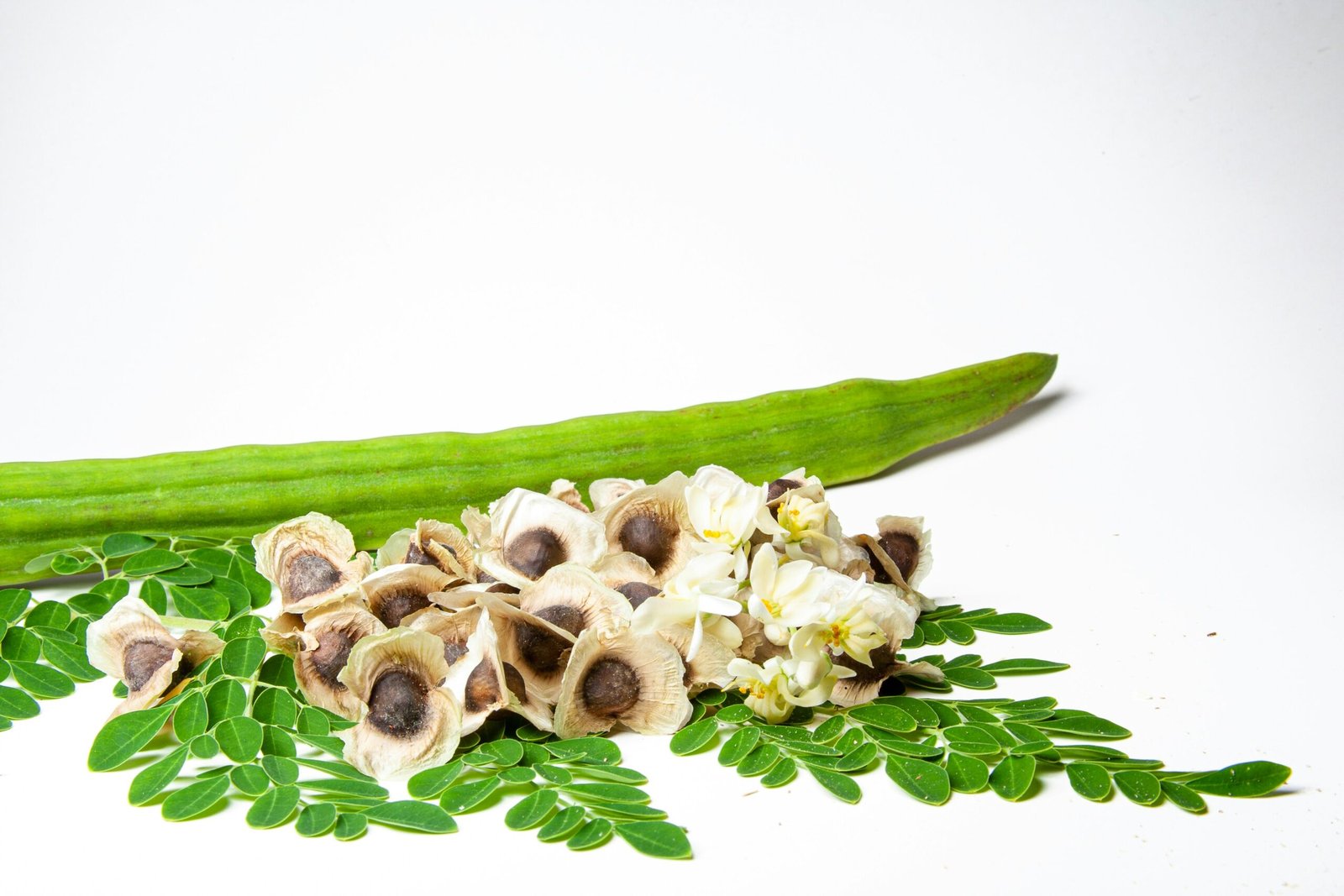
Have you ever wondered whether the superfood moringa could have an impact on your liver health? Given the increasing popularity of this plant in health supplements and culinary practices, it’s no surprise that many people are curious about its potential benefits and risks.

Understanding Moringa: A Nutrient Powerhouse
Moringa oleifera, often referred to as the “drumstick tree” or “miracle tree,” has been celebrated for centuries in many cultures for its impressive nutritional profile and therapeutic properties. It’s packed with vitamins, minerals, and antioxidants, making it a valuable addition to your diet. The leaves, pods, seeds, and even the oil extracted from moringa have been used for various purposes.
Complete Nutritional Breakdown
Moringa is abundant in essential nutrients. Here’s a quick breakdown of some key components:
| Nutritional Component | Amount per 100g |
|---|---|
| Protein | 27.1g |
| Vitamin A | 18,900 IU |
| Vitamin C | 51.7mg |
| Calcium | 2,003mg |
| Iron | 4mg |
| Potassium | 337mg |
These impressive figures showcase why moringa is often touted as a superfood. Packed with protein, vitamins, and minerals, it’s a great addition for anyone looking to boost their nutritional intake.
Moringa’s Potential Health Benefits
In recent years, moringa has gained attention for a variety of health benefits. People are fascinated by its potential to enhance overall wellness, including supporting liver function. But is it safe for your liver? To answer that question, it’s essential to look at the various benefits moringa can offer.
Antioxidant Properties
Moringa contains several bioactive compounds, including flavonoids and phenolic acids, which act as antioxidants. Antioxidants are crucial because they help neutralize harmful free radicals in the body, potentially reducing oxidative stress and inflammation. This process is essential when considering overall liver health.
Anti-Inflammatory Effects
Chronic inflammation is a significant risk factor for various liver diseases. Moringa’s anti-inflammatory properties may help mitigate this risk. Studies suggest that moringa extracts can reduce markers of inflammation, which could be beneficial for liver function.
Blood Sugar Regulation
Maintaining stable blood sugar levels is important for overall health, including liver health. Research suggests that moringa might play a role in stabilizing blood sugar levels. This benefit is particularly useful for those concerned about the risk of developing fatty liver disease.
Cholesterol-Lowering Effects
High cholesterol can contribute to liver issues, including fatty liver disease. Some studies have indicated that moringa could help lower cholesterol levels, which may enhance liver health and function.
Is Moringa Safe for the Liver? The Research
While there is considerable enthusiasm surrounding the benefits of moringa, you might be wondering if there are any risks, particularly concerning liver health. It’s important to look closely at the research to arrive at an informed conclusion.
Human Studies: The Verdict
Most of the available research on moringa’s effects on liver health is rooted in animal studies or in vitro analyses. However, some preliminary human studies are beginning to shed light on the matter.
In one study involving healthy individuals, the consumption of moringa supplements did not lead to any adverse liver-related side effects. Similarly, subjects with metabolic syndrome showed improved liver function markers upon regular moringa supplementation.
Animal Studies: What We Know
Several studies have investigated the impact of moringa on liver health through animal models. For example, one study found that moringa leaf extract showed protective effects against liver damage induced by toxic substances. The findings indicated that moringa could help improve liver enzyme levels and overall liver function.
Here’s a summary of some significant findings from such studies:
| Study | Results |
|---|---|
| Moringa and Hepatoprotection | Reduced liver enzyme levels in treated animals. |
| Toxic-induced Liver Damage | Moringa extract helped counteract damage. |
| Inflammation Reduction | Lower levels of inflammatory markers observed. |
While animal studies provide valuable insights, they don’t fully translate to human conditions. Therefore, more human-based research is needed for conclusive results.
Safety Profile and Dosage
One of the main concerns people have is whether moringa could cause liver toxicity or other adverse effects. Generally, moringa is considered safe when consumed in moderation as part of a balanced diet. However, excessive intake through supplements or concentrated forms could pose risks.
The recommended dosage for moringa supplements varies, but it’s generally suggested that anyone should not exceed 1-2 teaspoons of the powdered leaf per day unless otherwise advised by a healthcare professional.
Considerations Before Adding Moringa
It’s essential to be mindful of certain factors before you decide to incorporate moringa into your routine, especially if you have pre-existing health conditions.
Existing Liver Conditions
If you have a diagnosed liver condition, you should consult your healthcare provider before adding moringa to your diet. While moringa has protective effects, it could interact with medications or exacerbate existing issues.
Medication Interactions
Moringa may have interactions with certain medications, particularly those processed in the liver. Always consult a medical professional if you’re taking medication to ensure that moringa will not interfere with treatment.
Quality of Moringa Products
The market for moringa products is diverse, ranging from powders to capsules and teas. It’s vital to choose high-quality products from reputable sources to minimize the risk of contaminants. Products that are free of fillers and additives are usually safer.
Allergies and Sensitivities
While rare, some individuals may be allergic to moringa. It’s always a good idea to start with a small amount to see how your body reacts. If you experience any adverse reactions, discontinue use and consult a healthcare professional.

How to Incorporate Moringa into Your Diet
If you decide that you would like to include moringa in your diet, there are many fun and delicious ways to do so!
Moringa Powder
One of the easiest forms to use is moringa powder. You can add this to smoothies, soups, and stews, or sprinkle it on salads. Just remember that it has a distinct taste, so you may want to start with a small amount.
Moringa Tea
Moringa leaves can also be dried and used to brew tea. This can be a soothing and healthful beverage, especially if enjoyed after a meal.
Moringa Capsules or Tablets
For those who prefer a more convenient approach, moringa supplements in capsule or tablet form can be an option. Make sure you choose products from reputable brands.
Moringa Oil
Moringa oil, derived from seeds, can be used for cooking or as a salad dressing. It has a mild flavor and can be a great addition to your kitchen ingredients.
What to Watch For
When adding any new supplement or ingredient to your diet, it’s vital to monitor your body’s reactions. Pay attention to any changes, whether positive or negative, and consult your healthcare provider if you notice anything unusual.
Benefits Versus Risks
Ultimately, the choice to use moringa should be based on your individual health conditions and dietary needs. Understanding the potential benefits, like its role in liver health, as well as any potential risks, can help you make a more informed decision.

Conclusion: A Safe Choice for Many?
While preliminary evidence suggests that moringa may be safe and beneficial for liver health for many individuals, it’s essential to approach it thoughtfully. By taking into consideration your existing health conditions, potential medication interactions, and choosing quality products, you can safely include moringa in your diet. Always listen to your body, and when in doubt, consult your healthcare provider.
As you navigate your journey with health and wellness, remember that making informed choices is key to living your best life.